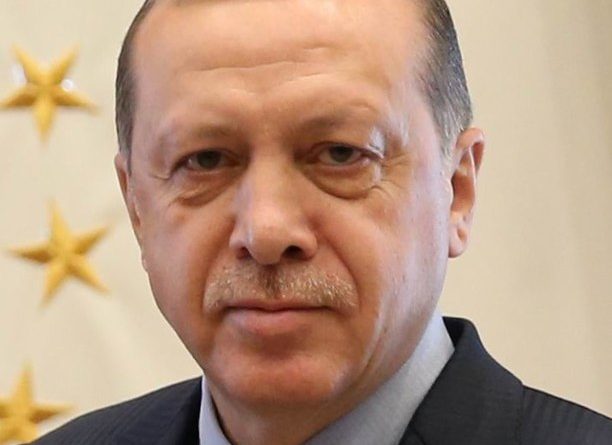Turkey-U.S. Relations Deteriorating as Turkey Seeks Russian Alliance
Waina Ali
Staff Writer
On September 24, Turkish President Recep Tayyip Erdogan said that Turkey will consider buying a second S-400 missile system from Russia, drawing international scrutiny. This announcement concerned United States defense officials, particularly following the events of 2020, in which Turkey was kicked out of NATO’s F-35 program for similar actions, reports ABC News.
According to Al Jazeera, the state received sanctions following their initial purchase of a Russian missile set, with their removal from the alliance justified by the Countering America’s Adversaries Through Sanctions Act or CAATSA. The United States, along with other NATO allies, insisted that using the S-400 missiles along with F-35 missiles posed a threat to its security, pointing to fears of Russian attempts to secretly collect information regarding the F-35’s through their own missiles. Turkey has claimed that the S-400’s did not have to be included in NATO’s system, but also reaffirmed its desired relationship with Russia, pointing to deep-seated tensions with the U.S. as a reason to turn to other states for security purposes.
Al Jazeera continue that immediately after President Erdogan’s provocative declaration, the U.S. Senate Committee on Foreign Relations replied by threatening more sanctions should the purchase go through. Politico reports, however, that despite these outcries, Erdogan remains firm in his position. Also included in his statement was a message to the U.S. challenging their duel support of the Turkish state and the Kurdistan Workers’ Party, a group of Syrian freedom fighters focused on empowering the Kurdish population of the region.
President Erdogan emphasized his belief in the diplomatic bond with the U.S. formed by NATO, but he expressed his desire for the country to cease its support of the Kurdish freedom fighters, who Turkey sees as terrorists. The Syrian group wants to create an independent state that includes part of Turkey, a significant reason why the Turkish government strongly opposes them. The aforementioned ABC News report stated that another key actor in this situation is Fethullah Gulen, a Muslim cleric that the Turkish government has accused of plotting a 2016 coup. Currently, Mr. Gulen is living in the U.S., and her continued backing by the U.S. government has caused further tensions.
This past June, however, it appeared that U.S.-Turkey relations were improving. Al Jazeera reports that at a NATO summit, Presidents Biden and Erdogan discussed potential Turkish military efforts to protect an airport in Kabul, Afghanistan. The success of this initiative would have signified the possibility of an existing and evolving positive relationship between the U.S. and Turkey. Before this plan could ever take place, however, the Taliban took over the Afghani government.
The Al Jazeera report indicated a conceptual significance of the Turkish purchase of S-400 missiles. The deal signifies Turkey’s shift in military reliance on relationships in the West to burgeoning countries like Russia. While remaining steadfast in their sanctions, the U.S. recognizes that Turkey holds significant importance as a NATO member. The state is home to several NATO military bases and plays a critical role in ensuring security in the Middle East. Regardless of NATO’s perception of Turkey, the developing relationship between the state and Russia is symbiotic. As Maxim Suchove from the Russian International Affairs Council, discussed, “Turkey sees Russia as a resource it can use to strengthen its strategic sovereignty, while Russia sees Turkey as a tool for increasing its own authority as a great power.”
Bloomberg notes that the Sochi Summit in Russia on September 29 saw Turkey and Russia’s presidents discussing a variety of issues. According to President Erdogan, however, the main topic of these discussions was defense, mainly regarding tentative plans for Turkey’s second S-400 purchases, as well as a proposal for Turkey and Russia to work together on two nuclear plants. However, experts such as Ruslan Pukhov, a defense analyst, claim that President Erdogan is overblowing the conversations that occurred to make the U.S. and its allies nervous. President Erdogan could use this summit as leverage in the future, Pukhov notes.


